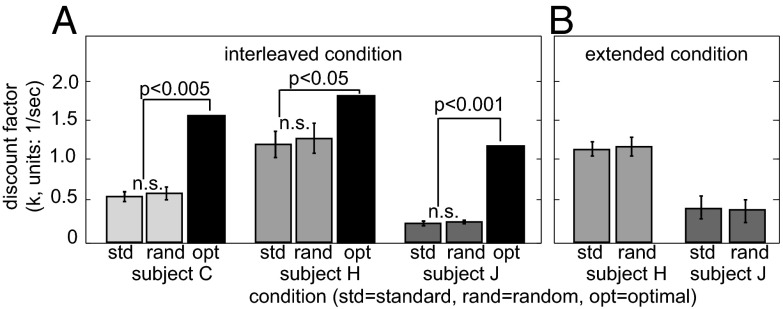Fig. 3.
Behavior of three monkeys in random buffer variant of the intertemporal choice task. (A) Behavior in interleaved trial set. Randomizing the length of the postreward buffer (rand) does not affect preferences, as indicated by best fit discount factor (k, y-axis), relative to standard task (std). Subjects that discount at the measured rates and yet fully account for the task structure should increase their choices of the SS option in the random buffer task, leading to increased measured k values (optimal, black bars); this pattern was not observed. Bars indicate SE. (B) Behavior in overtraining set (Methods).

